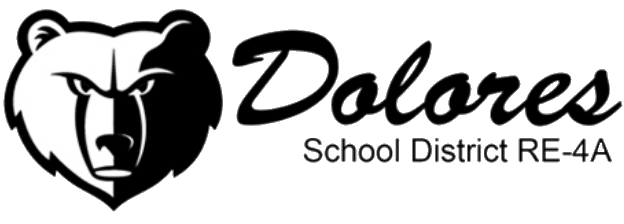
The Dolores School District Board of Education is considering asking voters to approve a $360,000 Mill Levy Override (MLO) at this November’s election to support the strategic goals of the school district.
The proposed MLO will not increase taxes based on current assessment rates. The district’s proposal is actually $30,000 less than the district’s expiring mill levy override—but will still address the district’s most important needs.
The Board of Education has focused the proposed mill levy override on the following priorities:
- Staff recruitment and retention, including salary increases:
- Dolores School District’s average teacher salary is about $45,000—much lower than three neighboring school districts that pay higher salaries.
- The district has worked to increase salaries and provide bonuses to teachers and staff. However, this will remain an ongoing challenge.
- Instructional materials, supplies and technology:
- The district needs to update classroom materials and supplies, student books and technology to provide the best learning resources for students and teachers.
If approved, the 2024 MLO would sunset in 2032, allowing taxpayers to review how the district used the funds. Visit doloresschools.org/financial-transparency for more information about the district’s budget and fiscal accountability.
The Dolores School District Board of Education is considering asking voters to approve a Mill Levy Override (MLO) at this November’s election. The following information addresses several frequently asked questions about the MLO from the community.
What is a Mill Levy Override?
School districts in Colorado may ask voters for additional funding—above the amount established annually by the Colorado General Assembly as part of the School Finance Act law—through an MLO.
This additional funding from an MLO must be used to address specifi c needs and to put in place programs to enhance and expand opportunities for students.
How much is the MLO?
The proposed annual MLO is $360,000. If approved by voters, the district will not be able to collect and spend any additional local tax dollars above that amount.
Does the district have an MLO now?
Local voters approved a $390,000 MLO in 2015, which expires this year. The proposed MLO will actually reduce local taxes by $30,000.
Why does the MLO include teacher and staff salaries?
The district has worked to increase salaries and provide bonuses to teachers and staff so that the district can attract and retain talented faculty and staff to teach our children and operate the district. Ensuring that our staff is properly compensated is a priority of the Board of Education.
- Since the 2021-22 school year, the base hourly rate for starting Classified employees increased from $12.32 per hour to $16.70 per hour for the 2024-25 school year.
- Base salary for a Certified teacher with a bachelor’s degree increased from $32,051 for the 2021-22 school year to $40,071 for 2024-25 the school year.
- Base annual salary for a Certified teacher with a master’s degree increased from $36,553 for the 2021-22 school year to $44,651 for the 2024-25 school year.
Will the MLO increase my taxes?
If voters approve the 2024 proposed MLO, local tax-
es will actually decrease since the new MLO request is $360,000—$30,000 less than the current MLO.
Does the MLO have fiscal limitations?
Yes. The MLO must be approved by voters at the November election. In addition, the MLO has a sunset in 2032 and would expire after that date if voters do not approved a new MLO. The district also conducts an annual audit and makes that information available to the public.
How is the MLO different from last year’s bond?
Voters approved a $11.2 million bond in 2023 for construction projects to address fl oodplain risk for the campus and school builds, safety and security upgrades, and improvements to indoor air for healthier classrooms. Part of the funds in the proposed MLO will be used on ongoing maintenance to extend the useful life of the district’s buildings.
Why does the district need additional funds for classroom materials?
The district’s curriculum must adapt to educate today’s students for tomorrow’s jobs and careers. Providing the highest quality and innovative classroom materials at all grade levels supports student achievement and provides teachers with the best tools possible for learning.
Why hasn’t the district issued its 2023 bonds yet?
Last year’s $11.2 million bond, which was approved by voters, can only be issued once the district receives a state of Colorado Building Excellent Schools Today (BEST) grant. The BEST grant does not have to be repaid by the district, but the district must provide local matching funds to receive the money from the state. The district had set the bond as its matching dollars. The bond funds—and the tax increase to pay for the bonds—will only be issued when the district receives a BEST grant. The district’s 2024 application was placed on the backup list and could still be awarded this year. If not, the district will reapply for a BEST grant to ensure that we leverage state dollars to invest in our local school. Having bond approval from voters makes the district’s future application stronger.
